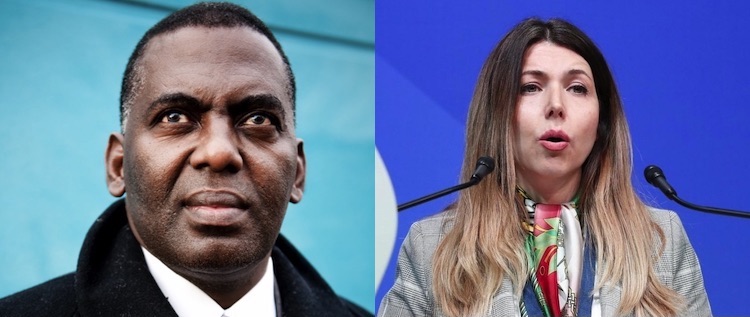By Jamshed Baruah
GENEVA (IDN) – Biram Dah Abeid, a descendant of former slaves who has been called “the Nelson Mandela of Mauritania”, and Shaparak Shajarizadeh, a prominent Iranian women’s rights activist have been honoured for their courage to fight gross violations of human rights
Abeid, founder of the Initiative for the Resurgence of the Abolitionist Movement (IRA), has mobilized tens of thousands of Mauritanians to protest slavery and the government’s failure to apply anti-slavery laws. JAPANESE | TAGALOG | THAI
By staging demonstrations, sit-ins, hunger strikes, marches, and disseminating information at home and abroad, Abeid has pressured the government to hold slave owners accountable for their crimes and raise awareness about the possibility of a slave-free Mauritania.
The Mauritanian government imprisoned him multiple times over the last decade: in December 2010, in 2012, in 2014 for over a year and a half, and most recently in 2018 for a period of five months.
Despite facing harassment and imprisonment, Abeid has worked to strengthen the enforcement of Mauritanian laws forbidding slavery, as well as to improve the social integration and livelihood of former slaves and other members of the majority black-African population facing discrimination.
In 2017, Abeid was listed by Time Magazine as one of the top 100 most important people in the world.
While he received the 2020 Geneva Summit Courage Award, Shaparak Shajarizadeh a prominent Iranian women’s rights activist – who was jailed, beaten and brutalized for removing her headscarf in public – was awarded the 2020 Geneva Summit International Women’s Rights Award at a ceremony on February 18. The award was presented by an international coalition of 25 human rights organizations.
“Over the past decade, my government has become renowned for its persecution, torture, and imprisonment of peaceful people whose only crime is fighting for equality and against discrimination,” said Abeid. “It is on their behalf, and in the spirit of their courage, that I am humbled and deeply grateful to receive this prestigious award.”
Abeid was chosen for his “fearless commitment to fighting slavery in Mauritania, defending hundreds of thousands of victims at the expense of his own freedom”,said Hillel Neuer, the executive director of United Nations Watch, a co-organizer of the conference together with Liberal International, Human Rights Foundation, and more than 20 other human rights groups.
Previous laureates of the Courage Award include former political prisoner and Tibetan filmmaker Dhondup Wangchen, jailed Saudi blogger Raif Badawi, Venezuelan opposition leader Antonio Ledezma, and Russian dissident Vladimir Kara-Murza,
The two award winners – Abeid and Shajarizadeh – addressed UN diplomats, human rights activists, and journalists from around the world attending the 12th annual Geneva Summit for Human Rights and Democracy.
The Iranian activist became a leader in the “Girls of Revolution Street” and “White Wednesday” civil disobedience movements. In February 2018, she was famously arrested for removing her hijab in defiance of Iran’s compulsory law. That year, Shajarizadeh was named by BBC as one of the 100 most inspiring and influential women around the world.
“I am extremely honoured to be nominated for this award,” said Shajarizadeh. “I feel more encouraged to continue my small share of changing the world on behalf of the brave Iranian women, and women all around the world, who are risking their lives each day to seize their dignity, fight for equality, and defend human rights.”
Shajarizadeh was chosen for her “fearless defence of women’s rights in Iran, for which she was jailed, beaten and brutalized”, said Neuer.
Previous laureates of the International Women’s Rights Award include anti-FGM activist Nimco Ali, Congolese anti-rape activist Julienne Lusenge, and Yazidi member of the Iraqi Parliament Vian Dakhil.
In addressing the 12th Geneva Summit, Shajarizadeh joined other champions of human rights from around the world, including dissidents, activists, victims, and relatives of political prisoners from Iran, China, Pakistan, Cuba, Russia, Turkey, and Venezuela, who will be testifying on the human rights situation in their countries.
The event took place just days before the UN Human Rights Council’s main annual session, in order to place urgent situations on the world agenda. “It’s a focal point for dissidents worldwide,” said Neuer. [IDN-InDepthNews – 25 February 2020]
Photo: Collage of Biram Dah Abeid from Mauritania and Shaparak Shajarizadeh of Iran.




